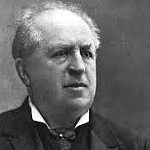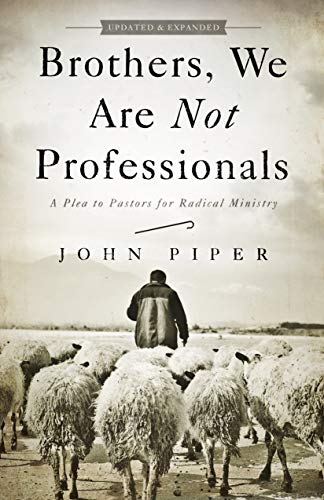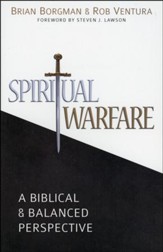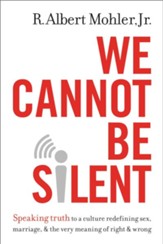Quotes about Wartime_Mentality
The Christian life is a war, and the fiercest battles are those that rage within the heart of every believer. The new birth radically and permanently changes a person’s sinful nature, but it does not immediately liberate that nature from all of the remnants of sin. Birth is followed by growth, and that growth involves warfare.
Thank God for the battle verses in the Bible. We go into the unknown every day of our lives, and especially every Monday morning, for the week is sure to be a battlefield, outwardly and inwardly in the unseen life of the spirit, which is often by far the sternest battlefield for souls. Either way, the Lord your God goes before you, He shall fight for you!
The Christian soldier must avoid two evils – he must not faint or yield in the time of fight, and after a victory he must not wax insolent and secure. When he has overcome, he is so to behave himself as though he were presently again to be assaulted. For Satan’s temptations, like the waves of the sea, do follow one in the neck of the other.
A Puritan Golden Treasury, compiled by I.D.E. Thomas, by permission of Banner of Truth, Carlisle, PA. 2000, p. 306.
God has appointed this whole life to be all as a race or a battle; the state of rest, wherein we shall be so out of danger as to have no need of watching and fighting, is for another world.
We are so utterly ordinary, so commonplace, while we profess to know a Power the Twentieth Century does not reckon with. But we are "harmless," and therefore unharmed. We are spiritual pacifists, non-militants, conscientious objectors in this battle-to-the-death with principalities and powers in high places. Meekness must be had for contact with men, but brass, outspoken boldness is required to take part in the comradeship of the Cross. We are "sideliners" – coaching and criticizing the real wrestlers while content to sit by and leave the enemies of God unchallenged. The world cannot hate us; we are too much like its own. Oh that God would make us dangerous!
Battles are won or lost on the field of prayer, but even prayer can be a battle.
In heaven we shall appear, not in armor, but in robes of glory. But here our arms are to be worn night and day. We must walk, work, sleep in them, or else we are not true soldiers of Christ.
When principles that run against your deepest convictions begin to win the day, then battle is your calling, and peace has become sin; you must, at the price of dearest peace, lay your convictions bare before friend and enemy, with all the fire of your faith.
The main trouble with the Christian Church today is that she is too much like a clinic, too much like a hospital; that is why the great world is going to hell outside!… Look at the great campaign, look at it objectively, look at it from God’s standpoint. Forget yourself and your temporary troubles and ills for the moment; fight in the army. It is not a clinic you need; you must realize that we are in a barracks, and that we are involved in a mighty campaign.
You are always on duty in the Christian life, you can never relax. There is no such thing as a holiday in the spiritual realm.
If I profess with the loudest voice and clearest exposition every portion of the truth of God except precisely that little point which the world and the devil are at the moment attacking, I am not confessing Christ, however boldly I may be professing Christ. Where the battle rages, there the loyalty of the soldier is proved to be steady… [It] is mere flight and disgrace if he flinches at that point [of attack].
Quoted by Francis A. Schaeffer in The Great Evangelical Disaster, Crossway, 1984, p. 50-51.
If we are Christ’s indeed, we are called not to a holiday but to a campaign. Our tent is pitched on a field of battle.
Christianity is a battle – not a dream (Wendell Phillips).
A well-trained soldier is not afraid of his adequacy in battle. In fact, in some ways he looks forward to the challenge of using his skills and equipment. It is not the fighting that scares him. It is the realization that out there somewhere may be a bullet with his name on it. But the wonder of the Gospel is that God promised there is no such bullet for the believer. Though we are in for the fight of our lives and may experience great loss – even of our lives – we know that the enemy is ours. God has promised that our souls are secure, and that He will ultimately defeat all our spiritual foes (John Murray).
There is a war going on. All talk of a Christian’s right to live luxuriantly “as a child of the King” in this atmosphere sounds hollow-especially since the King Himself is stripped for battle. It is more helpful to think of a “wartime” lifestyle than a merely “simple” lifestyle. Simplicity can be very inward directed, and may benefit no one else. A wartime lifestyle implies that there is a great and worthy cause for which to spend and be spent (2 Corinthians 12:15).
Desiring God, 1996, p. 170, Used by Permission, www.desiringGod.org. Get this book!
The new birth introduces a person into a life of warfare [and]…the most basic battle of our life is the battle to believe in the living God, and not to allow our heart to become an evil heart of unbelief.
Sermon, Battling the Unbelief of Anxiety, September 25, 1988, Used by Permission from DesiringGod.org.
Life is war. The casualties are millions, and the stakes are eternal. What we need today is not a call to simplicity, but a call to war. We need to think in terms of “wartime lifestyle” rather than a “simply lifestyle.”
The Dangerous Duty of Delight, Copyright 2001, p. 73, John Piper. Used by permission. www.DesiringGod.org.
The manual of operation for the Christian war-time mentality is the Bible. It was inspired and authorized by the Commander, and contains all the truth needed to win people over from the enemy camp, deprogram their old thought patterns, train them in strategies of righteousness and equip them with armor and weapons to defeat Satan and liberate his captives.
How the Spirit Helps Us Understand, 1 Corinthians 2:14-16, May 20, 1984. www.desiringGod.org, Used by Permission.
We must not conceal from ourselves that true Christianity brings with it a daily cross in this life, while it offers us a crown of glory in the life to come. The flesh must be daily crucified. The devil must be daily resisted. The world must be daily overcome. There is a warfare to be waged, and a battle to be fought. All this is the inseparable accompaniment of true religion. Heaven is not to be won without it. Never was there a truer word than the old saying, “No cross, no crown!” If we never found this out by experience, our souls are in a poor condition.
The true Christian is called to be a soldier, and must behave as such from the day of his conversion to the day of his death. He is not meant to live a life of religious ease, [laziness], and security. He must never imagine for a moment that he can sleep and doze along the way to heaven, like on traveling in an easy carriage… If the Bible is the rule of his faith and practice, he will find his course laid down very plainly in this matter. He must “fight.”
No soldiers of Christ are ever lost, missing or left dead on the battlefield.
I mean a struggle within the heart between the old nature and the new, the flesh and the spirit, which are to be found together in every believer (Gal. 5:17). A deep sense of that struggle, and a vast amount of mental discomfort from it, are no proof that a man is not sanctified. No, rather, I believe they are healthy symptoms of our condition, and prove that we are not dead, but alive, A true Christian is one who has not only peace of conscience, but war within. He may be known by his warfare as well as by his peace.
[People] ought to be told honestly what it is they are taking up, if they profess a desire to come out from the world and serve Christ. They ought not to be pressed into the ranks of Christ’s army without being told what the warfare entails.
Be ashamed to use the vulgar arts of a recruiting sergeant. Do not speak only of the uniform, the pay, and the glory; speak also of the enemies, the battle, the armor, the watching, the marching, and the drill. Do not present only one side of Christianity. Do not keep back “the cross” of self-denial that must be carried, when you speak of the cross on which Christ died for our redemption. Explain fully what Christianity entails. Entreat men to repent and come to Christ; but bid them at the same time to “count the cost.”
Where there is grace there will be conflict. The believer is a soldier. There is no holiness without a warfare. Saved souls will always be found to have fought a fight.
All alike must carry arms and go to war. All have by nature a heart full of pride, unbelief, sloth, worldliness, and sin. All are living in a world beset with snares, traps, and pitfalls for the soul. All have near them a busy, restless, malicious devil.
We as Bible-believing evangelical Christians are locked in a battle. This is not a friendly gentleman’s discussion. It is a life and death conflict between the spiritual hosts of wickedness and those who claim the name of Christ… But do we really believe that we are in a life and death battle? Do we really believe that the part we play in the battle has consequences for whether or not men and women will spend eternity in hell? Or whether or not those who do live will live in a climate of moral perversion and degradation? Sadly, we must say that very few in the evangelical world have acted as if these things are true… Where is the clear voice speaking to the crucial issues of the day with distinctively biblical, Christian answers? With tears we must say it is not there and that a large segment of the evangelical world has become seduced by the world spirit of this present age. And more than this, we can expect the future to be a further disaster if the evangelical world does not take a stand for biblical truth and morality in the full spectrum of life.
What makes a soldier for Jesus? Metaphorically speaking we could say, notable sacrifice for the gospel. Zeal to win the lost for Christ. Willingness to suffer for the faith. Desire to be an example to others even at the personal expense of your own liberties. Acknowledging and being victorious over the enemy. Working fearlessly and tirelessly for the Lord. Devotion. Obedience to your Commanding Officer. Prioritizing the needs of the church. Working as a team. Epaphroditus was Paul’s “fellow soldier” (Phil. 2:25). Paul’s spoke similar words to Timothy, his other son in the faith. “Suffer hardship with me as a good soldier of Christ Jesus” (1 Tim. 2:3).
All of our warfare and all of our activity must take place in the context of constant, unceasing prayer. Just as a soldier on the battle line has to keep in constant communication with his general headquarters and his commanding officer, so the Christian who is on the battle line must be in constant communication with his Lord. He might be fully equipped with all the armor, but if he is cut off from personal communication with his own commander, then he will be isolated and vulnerable.
The Purpose of God, An Exposition of Ephesians, Christian Focus Publications, 1994, p. 152.
The church has been established by Christ to be an army…(but) armies, in order to be effective, must be very sensitive in caring for their wounded… There is always a major work to be done within the church in terms of ministering to the needs of the people.
The Purpose of God, An Exposition of Ephesians, Christian Focus Publications, 1994, p. 103.
When thou sleepest, think that thou art resting on the battlefield; when thou walkest, suspect an ambush in every hedge.
We ought to regard the church not as a luxurious hostelry where Christian gentlemen may each one dwell at ease in his own inn, but as a barracks in which soldiers are gathered together to be drilled and trained for war. We should regard the church not as an association for mutual admiration and comfort, but as an army with banners, marching to the fray, to achieve victories for Christ, to storm the strongholds of the foe, and to add province after province to the redeemer’s kingdom.
The reason why many fail in battle is because they wait until the hour of battle. The reason why others succeed is because they have gained their victory on their knees long before the battle came… Anticipate your battles; fight them on your knees before temptation comes, and you will always have victory.
We hear much in our day of the rest of faith, but there is such a thing as the fight of faith in prayer as well as in effort. Those who would have us think that they have attained to some sublime height of faith and trust because they never know any agony of conflict or of prayer, have surely gotten beyond their Lord, and beyond the mightiest victors for God, both in effort and prayer, that the ages of Christian history have known. When we learn to come to God with an intensity of desire that wrings the soul, then shall we know a power in prayer that most of us do not know now.
The fall of man has created a perpetual crisis. It will last until sin has been put down and Christ reigns over a redeemed and restored world. Until that time the earth remains a disaster area and its inhabitants live in a state of extraordinary emergency. To me it has always been difficult to understand those evangelical Christians who insist upon living in the crisis as if no crisis existed. They say they serve the Lord, but they divide their days so as to leave plenty of time to play and loaf and enjoy the pleasures of the world as well. They are at ease while the world burns.
People think of the world, not as a battleground, but as a playground. We are not here to fight; we are here to frolic. We are not in a foreign land; we are at home. We are not getting ready to live, but we are already living, and the best we can do is rid ourselves of our inhibitions and our frustrations and live this life to the full.
The worth of a soldier is never known in time of peace.
May the Church of Christ recognize the reality of the war in which we are engaged, the incomparable power which is available to us through the Cross, and the unavoidable responsibility to appropriate the power to carry out the commission of our Lord until His return signals the end of the war.
Soon the battle will be over. It will not be long now before the day will come when Satan will no longer trouble us. There will be no more domination, temptation, accusation, or confrontation. Our warfare will be over and our commander, Jesus Christ, will call us away from the battlefield to receive the victor’s crown.
Be very careful, then, how you live (Eph. 5:15), put on the full armor of God (Eph. 6:11), prepare your minds for action (1 Peter 1:13), make every effort (2 Peter 1:5), be self-controlled and alert (1 Peter 5:8). These are battle cries, and Scripture is full of them. But unlike our old conception of warfare, where battle lines are clear and the times of battle can almost be predicted, this is modern warfare in which you are not always sure where the enemy lurks. It is guerilla warfare. There are strategically placed snipers. You let down your guard for a moment and the village you thought was safe suddenly opens fire on you.
Addictions – A Banquet in the Grave, P&R Publishing, 2001, p. 226, Used by Permission. Get this book!
The problem is that as Christians, we often forget we are in a war. Or worse, we don’t even know that there is a war… It is easy to understand why many of us act as though we were on vacation.
Addictions – A Banquet in the Grave, P&R Publishing, 2001, p. 226-227, Used by Permission. Get this book!
The Queen Mary, lying in repose in the harbor at Long Beach, California, is a fascinating museum of the past. Used both as a luxury liner in peacetime and a troop transport during the Second World War, its present status as a museum the length of three football fields affords a stunning contrast between the lifestyles appropriate in peace and war. On one side of a partition you see the dining room reconstructed to depict the peacetime table setting that was appropriate to the wealthy patrons of high culture for whom a dazzling array of knives and forks and spoons held no mysteries. On the other side of the partition the evidences of wartime austerities are in sharp contrast. One metal tray with indentations replaces fifteen plates and saucers. Bunks, not just double but eight tiers high, explain why the peacetime complement of 3000 gave way to 15,000 people on board in wartime. How repugnant to the peacetime masters this transformation must have been! To do it took a national emergency, of course. The survival of a nation depended upon it. The essence of the Great Commission today is that the survival of many millions of people depends on its fulfillment.
Reconstruction to a Wartime, not a Peacetime, Lifestyle, Perspectives on the World Christian Movement, William Carey Library, 1981, p. 814.




























